Founders & Governance
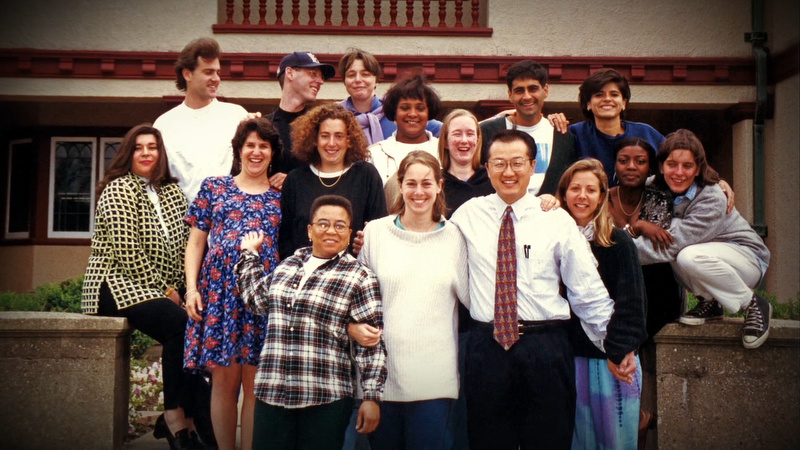
GOVERNANCE
Partners In Health Canada is governed by a volunteer Board of Directors that oversees the organization’s operations.
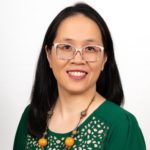
Dr. Adrienne Chan is an Infectious Diseases physician at Sunnybrook Health Sciences Centre and Associate Professor of Medicine at the University of Toronto, Canada. Dr. Chan’s areas of interest include differentiated models of HIV care and treatment delivery in low resource settings, optimizing management of opportunistic infections in low resource settings, and the health systems effects of emerging infectious diseases (Ebola, COVID-19, MPX). She holds a cross-appointment to the Clinical Public Health Division at the Dalla Lana School of Public Health and the Institute for Health Policy, Management and Evaluation at the University of Toronto, where she has taught on Health Systems Management in International Settings. Over the last 16 years, Dr. Chan has worked in southern Africa with clinical experience in Malawi, Lesotho, Sierra Leone and Zimbabwe, and multiple research collaborations with regional and international networks. In 2007, Dr. Chan joined Dignitas International as the organization’s HIV Clinic Coordinator in Zomba, Malawi, and later became Medical Coordinator for the Malawi country program. She previously worked at the Francois-Xavier Bagnoud Center for Health and Human Rights under Dr. Jim Yong Kim, on policy research on increasing access to PMTCT and early childhood development interventions in resource-limited settings.
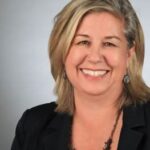
Chris Dendys has extensive experience working in support of social justice and social impact domestically and internationally. She is a seasoned executive with a background in advocacy, government relations, strategic partnerships, and supporting grassroots movements. As Executive Director of Results Canada, Chris oversees all aspects of Results Canada’s organizational strengthening efforts, campaign strategy, and grassroots support and growth. Chris has also worked as a consultant, supporting a number of non-government organizations, and has held a variety of positions in government, in Parliament, and in political offices. In addition to serving on the Board of Partners in Health Canada, Chris is also a Director on the Board of the Canadian Partnership for Women and Children’s Health (Can-WaCH), and is on the leadership group of ACTION, an international partnership of global health advocates. Chris has four children and lives in Ottawa.

Steve Dixon is an innovative global technology executive with experience building businesses inside Canada and out of Silicon Valley. As Chief Revenue Officer at Admitly, Steve’s vision is to help democratize access to education for international students. Prior to Admitly, Steve served as a member of the initial leadership team at Wave Apps. He went on to lead the development of Facebook Canada’s tech/telco industry team, and was most recently Apple Canada’s Canadian small business leader. Steve’s earlier years were spent building out the technology, media, and telecommunications industry practice at Deloitte, where he was a Canada Fast 50 Judge. Steve has been actively involved in supporting community oriented and not-for-profit organizations including The David Suzuki Foundation, the Nature Conservancy of Canada, and Junior Achievement of Central Ontario. Steve holds an Honours Degree in Business Communications from Brock University. In his “spare” time, Steve is raising 1-year-old twins. He and his family live in Toronto.
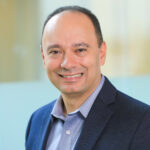
Michael Ghobros is an experienced executive who has led various global organizations in different capacities. He currently works as Director, Technology Regulation of a large government agency. Michael is a seasoned leader with a strong technical and IT background and has accumulated extensive experience as a senior technical executive in large complex environments in both the private and public sectors. He has over 15 years of strategic and operational IT leadership experience. During these years, he has built a track record of delivering leading-edge digital solutions and executing technology transformational strategies. Michael holds a Master of Engineering in Technology Innovation Management (TIM) from Carleton University, is a Project Management Professional (PMP) as well as a Professional Engineer of Ontario (P.Eng). Michael has also served, in various roles, on the Board of Directors for the Project Management Institute Lakeshore Ontario Chapter (PMILOC) including Board Chairman and is actively involved in various community oriented not-for-profit activities.

Cindy is a Speech Language Pathologist and co-founder of ACT Learning Centre and ACT’S sister company, CommuniCare Therapy. Cindy’s area of clinical focus is the provision of assessment and treatment of children, adolescents, and adults with autism spectrum disorder, developmental disabilities, intellectual disabilities, global developmental delays. Cindy holds a post-graduate certificate in DIR/Floortime, and is the only Master Trainer for The Play Project in Canada. Cindy is Senior Faculty for Profectum, a New Jersey-based international online learning organization that specializes in offering post-graduate training in the Developmental Individual Difference (DIR/Floortime) model for clinicians wishing to work with children, youth and adults with autism, intellectual disabilities and developmental disabilities. Cindy is currently teaching in Profectum’s Training Program educating occupational therapists, speech language pathologists, psychologists, educators and physicians in the use of the DIR model in their practice settings. Cindy is a well-known public speaker who trains and educates clinicians and parents in North America and abroad. Cindy holds a Bachelor of Arts in Psychology from the University of Western Ontario and a Master of Science in Speech Language Pathology from the University of Vermont. She is very active in her community and serves on a number of boards and community associations.
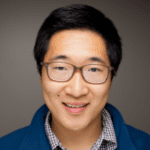

Rosemary McCarney is an award-winning humanitarian, business leader, author, and a recognized public speaker and media commentator. Her extensive career in law, business, academia, the not for profit sector and diplomacy has taken her to over 100 countries. She has served on the Boards of numerous organizations. She was the first Executive Director of the Canada United States Law Institute, has practised law in the US and Canada, and has held executive positions in the technology sector and in civil society. In 2005, she became the CEO of Plan Canada International, one of the oldest and largest charities in Canada. In 2015 she was appointed as Canada’s Ambassador and Permanent Representative to the United Nations and the Conference on Disarmament in Geneva. On her return to Canada, she joined Trinity College as the inaugural Pearson Sabia Visiting Scholar in International Relations and was named the Graham Massey Senior Distinguished Fellow in Foreign and Defense Policy. She lectures in the IR Faculty at Trinity College in Multilateral Diplomacy and Global Governance. She is a passionate multilateralist, a committed advocate for human rights and human rights defenders and for the power of diplomacy, consensus building and interdisciplinary perspectives to address the challenges of our time. Her award-winning series of children’s books, intended to make social justice and human rights issues accessible to young readers, have been translated and published around the world.

Ryan Meili is a family physician with a focus on health equity and a lifelong advocate for healthy public policy. He has practiced medicine in rural and Northern Saskatchewan, inner-city Saskatoon and rural Mozambique. He currently works as a tuberculosis specialist serving the Athabasca region of Northern Saskatchewan and at the West Side Community Clinic. Ryan lives in Saskatoon with his wife, Mahli Brindamour – a pediatrician with a special interest in tropical medicine, refugee health and tuberculosis – and their sons Abe and Gus. In late 2023 and into spring 2024, the family will be living in Maseru, Lesotho where Ryan and Mahli will be supporting the work of Partners in Health at the Botšabelo MDR-TB Hospital. In 2017, Ryan put the concept of politics as “medicine on a larger scale” into practice, running to become Member of the Legislative Assembly for Saskatoon Meewasin and serving as Leader of the Saskatchewan New Democratic Party and Leader of the Official Opposition in Saskatchewan from 2018-2022. He is the author of two books with UBC Press: A Healthy Society: How a focus on health can revive Canadian democracy and A Healthy Future: lessons from the frontlines of a crisis.
FOUNDERS
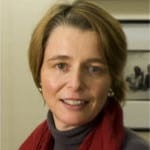
Ophelia Dahl co-founded Partners In Health, which began in Haiti’s rural Central Plateau more than 30 years ago and now serves millions of patients in 11 countries on four continents around the world. PIH’s community-based model has helped to redefine what’s possible in health care delivery in settings of poverty, proving that HIV, multidrug-resistant tuberculosis, and other diseases that stalk the poor can be effectively treated in communities from Peru to Rwanda to West Africa. Dahl led PIH as executive director for 16 years and now chairs its Board of Directors. She continues to write, teach, and speak about the health and rights of the poor, moral imagination, and accompaniment.
Dahl also helps to lead the Roald Dahl Literary Estate, which manages the works of her late father, the writer Roald Dahl. She is a Director’s Fellow at the MIT Media Lab, and a trustee of Wellesley College, her alma mater. Dahl is a recipient of the Union Theological Seminary’s Union Medal and, together with her PIH colleagues, the Hilton Humanitarian prize. She lives in Cambridge with her family.
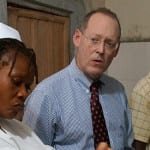
Dr. Paul Farmer, physician and anthropologist, was chief strategist and co-founder of Partners In Health, Kolokotrones University Professor and chair of the Department of Global Health and Social Medicine at Harvard Medical School, and chief of the Division of Global Health Equity at Brigham and Women’s Hospital in Boston. He also served as U.N. Special Adviser to the Secretary-General on Community-based Medicine and Lessons from Haiti. Dr. Farmer has written extensively on health, human rights, and the consequences of social inequality. His most recent books are In the Company of the Poor: Conversations with Dr. Paul Farmer and Fr. Gustavo Gutiérrez, Reimagining Global Health: An Introduction, and To Repair the World: Paul Farmer Speaks to the Next Generation. He died in Rwanda on February 21, 2022.
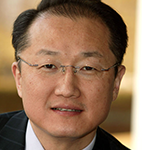
Dr. Jim Yong Kim is Vice Chairman and Partner at Global Infrastructure Partners. Kim co-founded PIH, where he developed treatment programs for MDR-TB and AIDS in Haiti, Peru, and several other countries. From 2003 to 2005, Kim served as Director of the World Health Organization’s HIV/AIDS department. In 2009, he was named the 17th President of Dartmouth College. Pres. Barack Obama nominated Kim to become the 12th President of the World Bank Group, a position he held from July 2012 to February 2019.
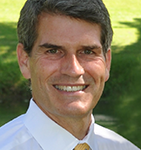
Todd McCormack is a co-founder of Partners In Health and has supported his friend, Paul Farmer, since they first met at Duke University in 1978. He serves on the Board of Trustees and Board of Directors, focusing the majority of his time stewarding and collaborating with fellow Trustees to bring new resources to support PIH’s mission. He also chairs PIH’s Governance and Nominating Committee. McCormack is a Senior Corporate Vice President at IMG.
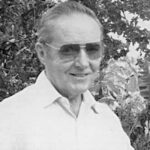
Tom White enabled Partners In Health to do “whatever it takes” to improve the lives and health of patients in vulnerable communities around the world. The owner and president of construction company J.F. White Contracting Co., he helped found PIH with his first $1 million donation and then systematically gave away his wealth by selling his company, his assets, and his house to continue supporting PIH. He died peacefully in Boston on Jan. 7, 2011.
PIH Canada is grateful for the efforts of Alain Paul Martin and colleagues at Harvard University Club of Ottawa for their role in helping to establish PIH Canada.